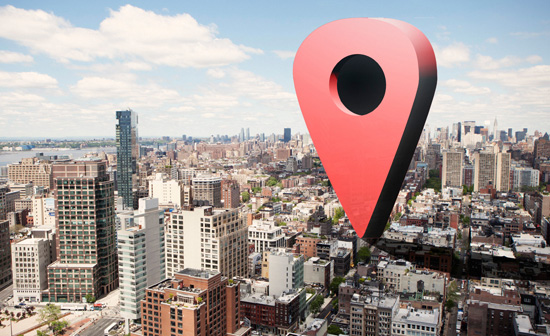When you’re just launching your business, office space is not an issue. More often than not, it’s your own home office or workspace that you and one or two people work out of. Maybe you even work out of a coffee shop down the street. But as your business grows and your team takes on new people, you’ll reach the moment where you have to graduate from home office to office space.
Finding the right space for your company is more difficult than it may seem, but with a few tips, you’ll find your startup’s new home in no time.
Before you even start looking, ask yourself these questions:
- Will you be looking to grow in the space?
- Where is your team coming from?
- What’s your budget, and how flexible is it?
- Where is your competition located?
- How do you want the office set up?
By figuring out what your basic needs are, and then moving up from there, you’ll be better able to assess each office space by how well it meets your needs and your wants.
Location, Location, Location
Should you set up in a city or a town? Big cities certainly have their benefits — wide access to public transportation, a hub for certain industries and a large local customer base, to name a few. But a large city also has its drawbacks. Rent is often too expensive for a just-established startup, and the cost of living in the city, or of commuting to the city, could be too much for early hires.
You should also consider location from a marketing standpoint. If your target market is very niche or if the bulk of your business is conducted through e-commerce, being in a big city may not be important, since your audience isn’t necessarily located in one geographic region.
Competition
Although you’re a startup, taking some cues from large corporations is a good idea, especially where competition is concerned. Take a look at the area in which your competition has set up their office. If healthy competition is good for your industry, such as one that involves price-comparison shopping, it may be a good idea to set up in the same area as your competitors.
However, if your marketing efforts and bottom line are going to take a hit by establishing yourself near a competitor, maybe you should stay away. Try performing a market analysis of all the areas you’re considering setting up shop in, and then use the data to help your decision.
Costs
Paying rent on an office space may be where the bulk of your annual expenditures go, but the price of renting the space isn’t the only cost associated with moving your business into a new office. Consider your utility costs — heat, electricity and water. They can quickly add up, and you can get a better idea of your total costs if you factor them in right off the bat.
Other costs to take into consideration include:
- Cleaning and maintenance
- Insurance rates
- Parking fees
Infrastructure
The internet is often the most important tool in an entrepreneur’s toolkit. A fast, reliable internet connection is crucial to productivity, and some buildings will even offer internet as part of the utilities bill, but it’s not the only thing to consider.
Phone lines as well as mail and shipping services are also cornerstone services for a business, but they are easy to overlook. When searching for an office space, make sure the infrastructure is going to support the work that you and your team do every day.
Office Style and Layout
Style and office layout are also important factors to consider as you set up shop. Your business is your brand, and it should reflect your company’s personality. No potential client wants to come to the office of their would-be marketing firm and be tripping over old furniture or piles of paper. That doesn’t present your best image.
A well-thought office space, though, can be a great branding tool. For example, post images of the interior and exterior of your space on your website. Highlight the fact your office is cohesive and you have it together. Potential clients will be more likely to be impressed by a place with a nice look and feel, and your team will be more likely to have pride in the place they work.
Additionally, the way your office is laid out can greatly influence your work style. Having an open layout is much more conducive to collaborative thinking and teamwork, while more closed off, private cubicles allow for maximum concentration on independent work. Depending on your company and your employees’ jobs, the setup of the office can make a huge difference.
There’s a lot to consider when looking for the right office space. But knowing what to ask and having these tips handy can make it significantly easier on you, your business and your team.





